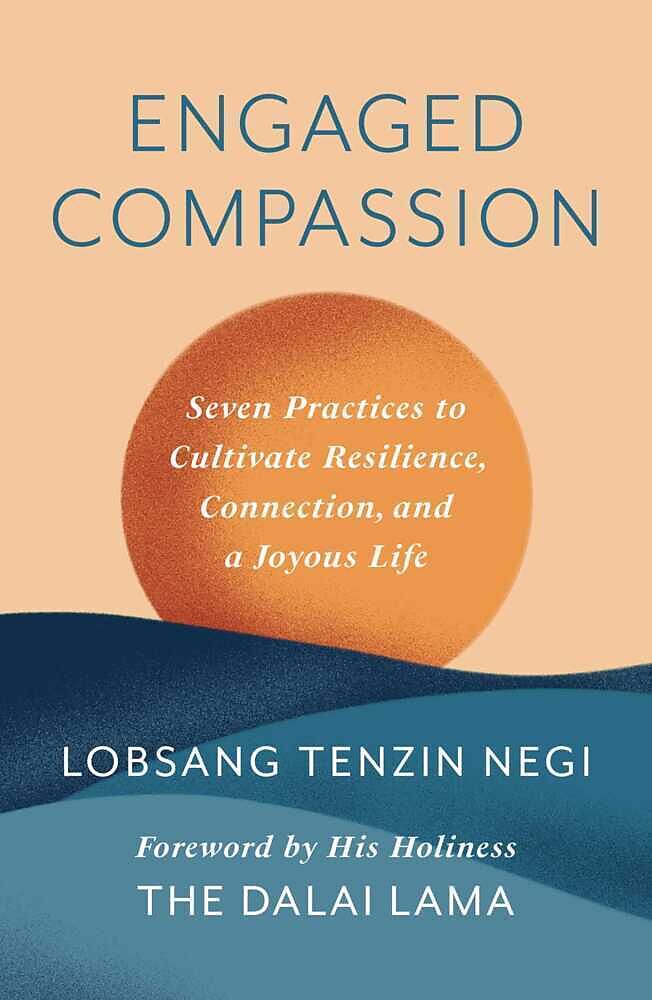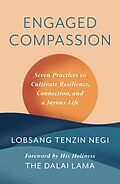

Engaged Compassion
Beschreibung
A seven-part mindfulness practice on the health benefits of Cognitively-Based Compassion Training (CBCT), rooted in Western science and Buddhist mindfulness, from the creator of the program developed at the Dalai Lama's Compassion Center at Emory Universi...Format auswählen
- Fester EinbandCHF 34.30
Wird oft zusammen gekauft
Andere Kunden kauften auch
Beschreibung
A seven-part mindfulness practice on the health benefits of Cognitively-Based Compassion Training (CBCT), rooted in Western science and Buddhist mindfulness, from the creator of the program developed at the Dalai Lama's Compassion Center at Emory University.
Former Tibetan Buddhist monk and current Emory professor and scholar, Lobsang Tenzin Negi was tasked by the Dalai Lama himself to find new ways of sharing ancient Tibetan wisdom to create a more compassionate, peaceful, and happier modern world.
In a world where burnout and disconnection have become epidemic, people are searching for a way to care deeply for others without depleting themselves. Engaged Compassion offers a revolutionary approach to human flourishing that goes beyond traditional self-care advice. This isn't about building walls to protect yourself-it's about developing the emotional intelligence and practical skills needed to create more meaningful connections at both individual and societal levels.
Through seven evidence-based steps, readers learn to transform their relationship with suffering-both their own and others'-into a source of resilience rather than exhaustion. Bridging time-tested contemplative methods with insights from cutting-edge psychology, it demonstrates how genuine compassion energizes us when practiced skillfully. The result? Discovering compassion as the key to making a meaningful difference in the world without sacrificing your own wellbeing.
Autorentext
Geshe Lobsang Tenzin Negi, PhD, (a.k.a. Satya Dev Negi) is the cofounder and director of the Emory-Tibet Partnership, a multi-dimensional initiative founded in 1998 to bring together the foremost contributions of the Western scholastic tradition and the Tibetan Buddhist sciences of mind and healing. He is also professor of practice in Emory University’s Department of Religion. Dr. Negi is the founder and spiritual director of Drepung Loseling Monastery, Inc., in Atlanta, Georgia. In this capacity, he serves as codirector of both the Emory-Tibet Science Initiative and the Emory Center for Contemplative Science and Compassion Based Ethics. In 2018, he launched, with the Dalai Lama, SEE Learning, a free compassion curriculum for children. Called by Daniel Goleman “SEL 2.0,” it has reached educators and parents around the world.
Geshe Lobsang, a former monk, was born in Kinnaur, a small Himalayan kingdom adjoining Tibet. He began his monastic training at the Institute of Buddhist Dialectics and continued his education at Drepung Loseling Monastery in south India, where he received his Geshe Lharampa degree in 1994, the highest academic degree granted in the Tibetan Buddhist tradition.
Klappentext
Leverage your biology to support the healing of anxiety, isolation, deep sadness, and conflict with this research-tested program for actively practicing compassion and unlocking the emotional and physiological benefits, in the tradition of Buddha’s Brain and Why Buddhism Is True.
Many years ago, former Tibetan Buddhist monk and Emory professor, Dr. Lobsang Tenzin Negi was tasked by the Dalai Lama himself to find new ways of sharing ancient Tibetan wisdom with the modern world. Dr. Negi turned that mission into a research project to find scientific and biological evidence that compassion is an essential tool for building resilience. The result is an eight-step program known as CBCT (Cognitively-Based Compassion Training), developed in the Dalai Lama’s Compassion Center at Emory University. The Power of Belonging presents a revolutionary marriage between Western science and Eastern thought.
In CBCT, the eight meditative steps help us grow our essential skills for building resilience and finding peace: an abiding sense of safety; a clear and focused mind; self-awareness; loosening the grip of self-blame; finding opportunity in difficult times; learning to love without bias; discovering our warm and tenderhearted connection to others; and compassion. These tools are the antidote to isolation, unrest, and personal suffering. And for the Dalai Lama and Dr. Negi, the stakes could not be higher: By cultivating our capacity for compassion, we become able to participate in building a more just and equitable world.
